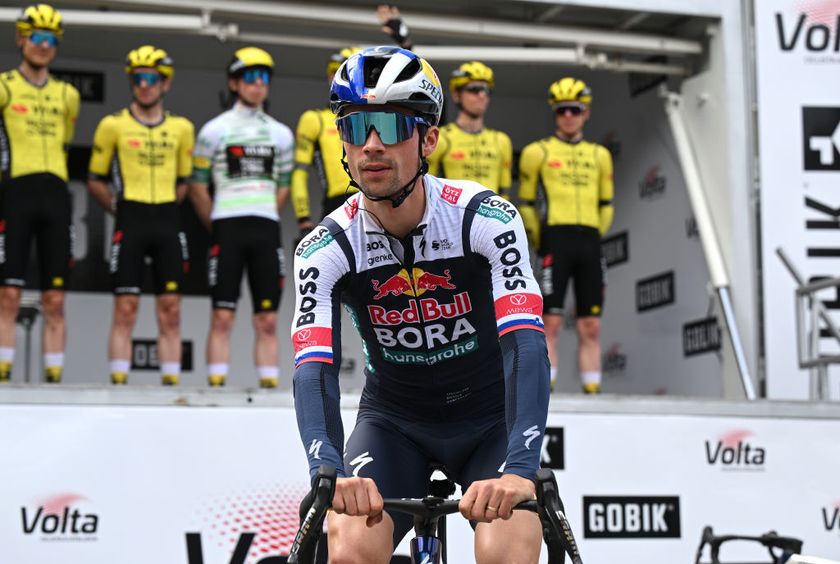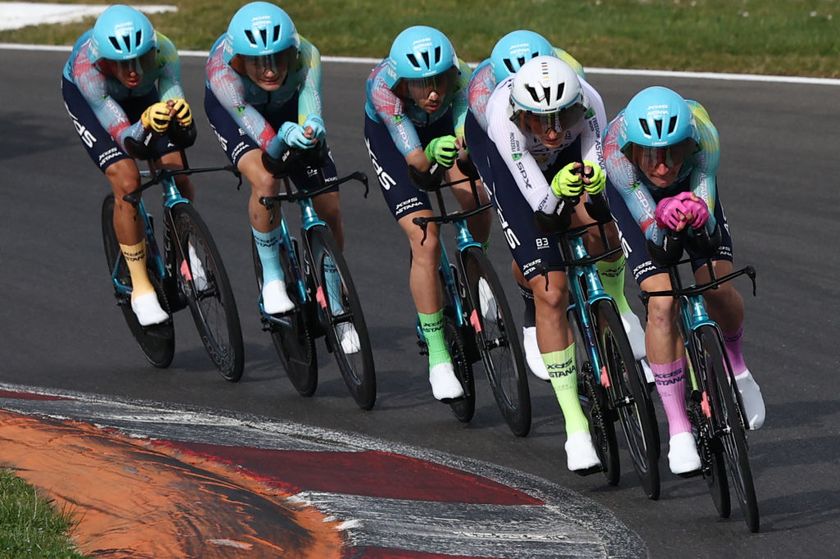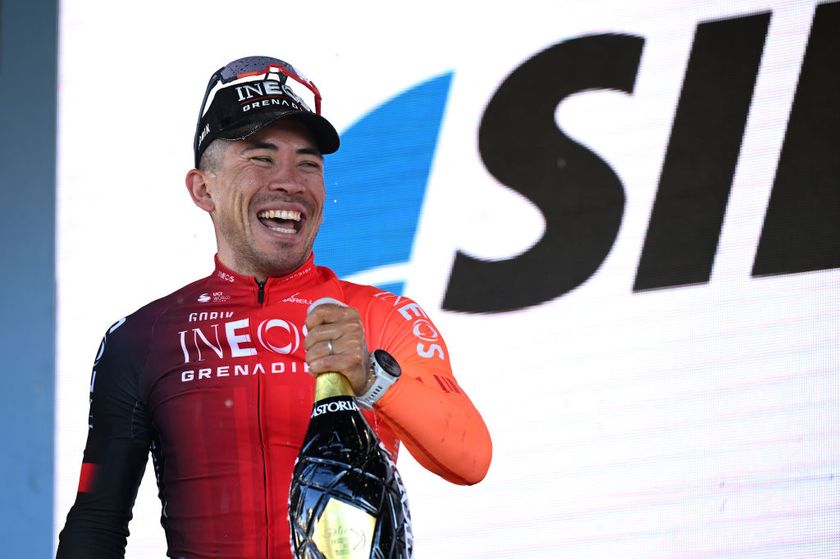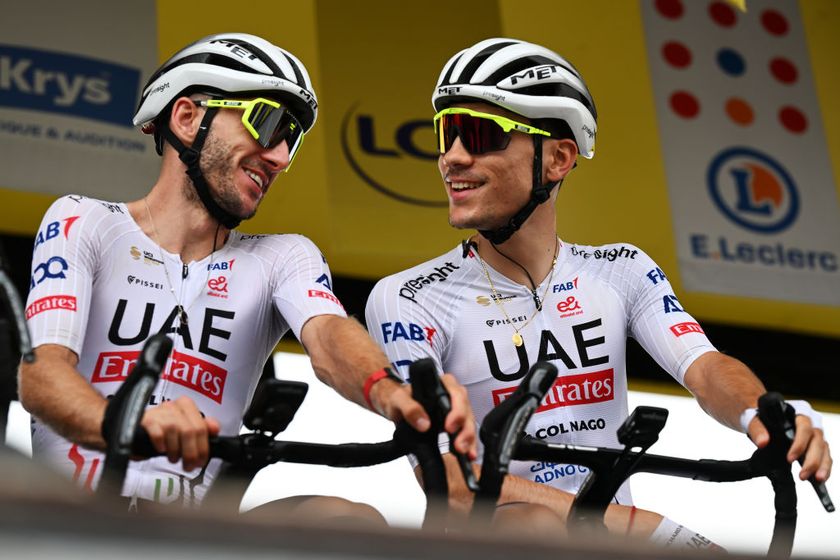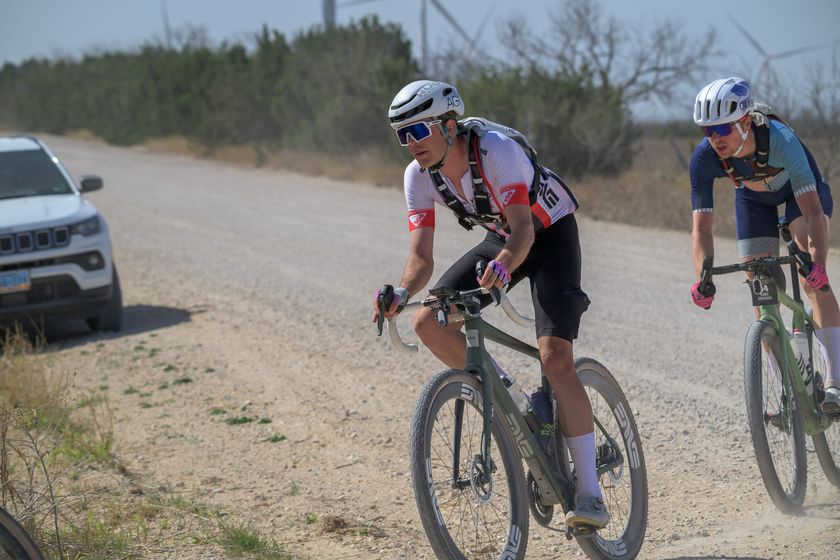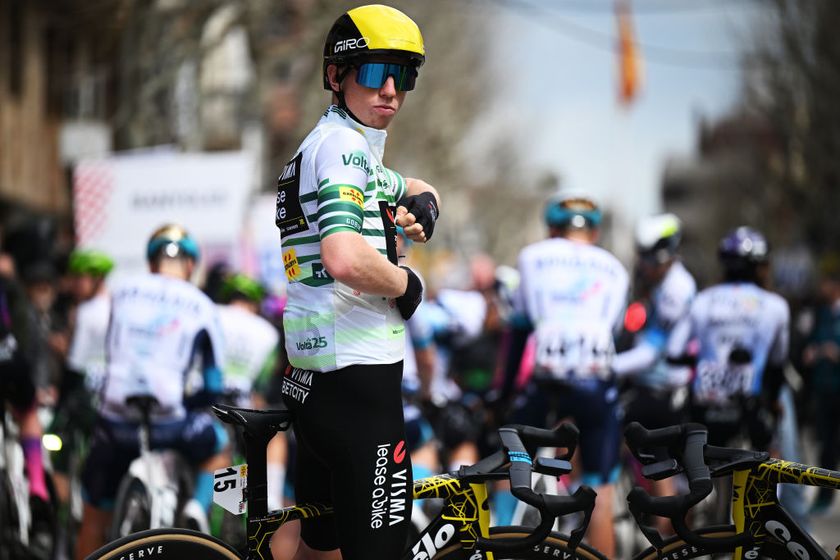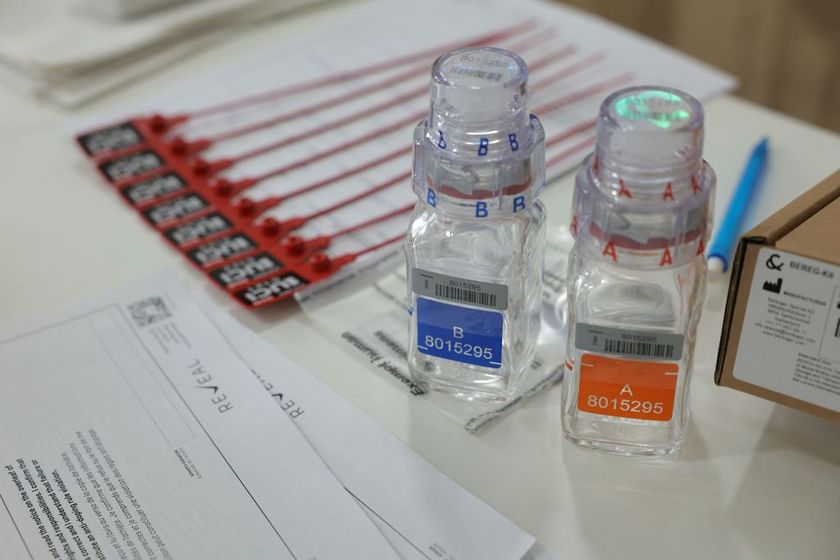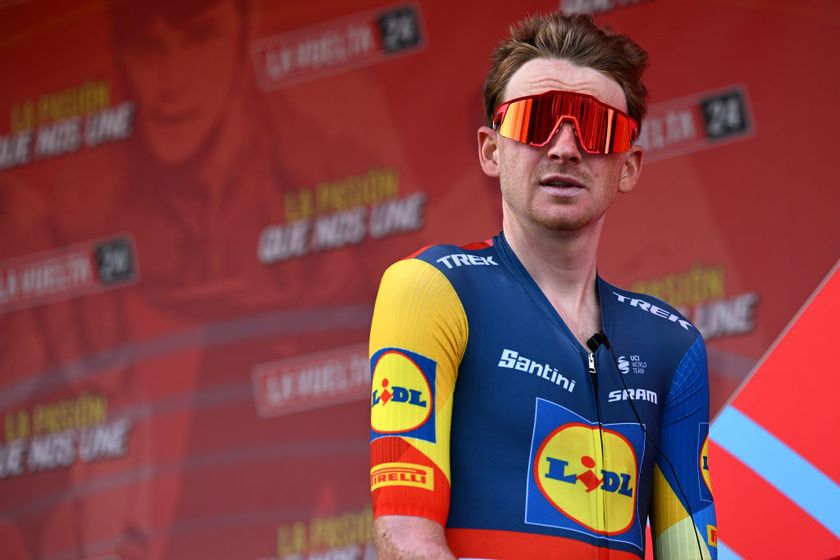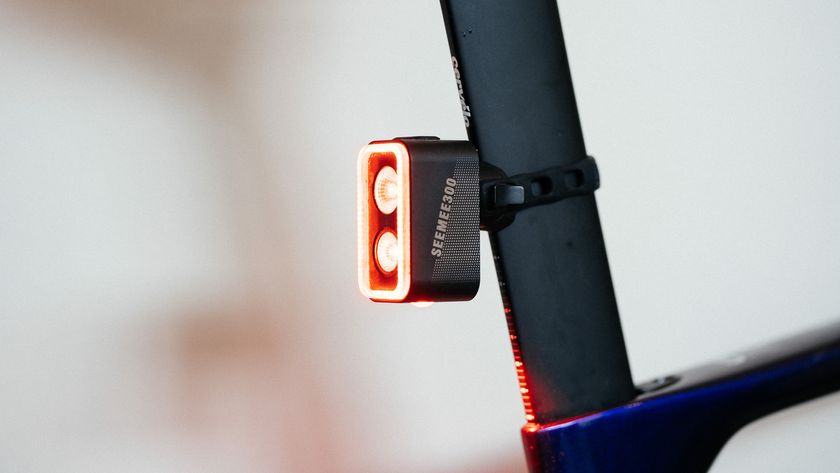USA Cycling dismisses anti-doping expert over unconventional views
Dr. Paul Dimeo was to chair Anti-Doping Committee, evaluate programs




USA Cycling dismissed anti-doping expert Dr. Paul Dimeo from its advisory committee this week over his views on the current state of anti-doping efforts as recently published in The Times.
Dr. Dimeo has a long history of addressing challenging issues in the anti-doping arena, but the Times article, which indicated that Dr. Dimeo thought currently banned practices such as blood transfusions or EPO should be legalised, caught the attention of USA Cycling and led to their re-examining his role on the advisory committee, even though he argued that his comments were taken out of context.
Cyclingnews spoke to USA Cycling CEO Derek Bouchard-Hall, after the article was published but before their decision to dismiss Dr. Dimeo, about how he came to be named as the chair of the USA Cycling Anti-Doping Committee.
"Dr. Paul Dimeo is a leading academic in anti-doping research. He was very interested in this idea and helping us form it," Bouchard-Hall said.
"We knew he had unconventional ideas. He challenged the system and asked hard questions such as 'is this working?', 'are we treating innocent athletes fairly?'. We thought that level of challenge was good. We didn't want a bunch of people with the exact same ideas. We wanted a collection of smart people who think about this and who are willing to challenge what we're doing. That was the whole point of it."
But the statements in the Times seemed contrary to USA Cycling's goals of reducing doping. "We did as much vetting as we could. It was after we formed the committee and before we started that we saw these comments he had made to the London Times advocating the legalisation of banned practices such as EPO and blood doping, which are very dangerous and extreme practices. That view is completely inconsistent with our view," Bouchard-Hall said.
Bouchard-Hall emphasised that the committee has no formal decision-making authority, but in a statement issued last night announcing Dr. Dimeo's dismissal, he wrote: "His recent comments advocating the legalization of certain doping practices made it clear that he does not share our fundamental views regarding eliminating doping from sport through the rigorous application of well-established anti-doping efforts."
Get The Leadout Newsletter
The latest race content, interviews, features, reviews and expert buying guides, direct to your inbox!
Challenging standard views but not advocating legalisation
Dr. Dimeo, a lecturer at the University of Stirling in Scotland, is well-known for his unconventional views on the current system of anti-doping. In an opinion piece in The Outer Line in 2014 titled 'Is the cure worse than the disease?', he highlighted the disparity in the treatment of Lance Armstrong, who was given a lifetime ban for a doping scheme that involved most of the US Postal Service team riders. But his teammates George Hincapie, Levi Leipheimer, Tom Danielson, David Zabriskie and Christian Vande Velde were only given six-month bans and largely welcomed back to the sport, while Armstrong remains a pariah.
[Read some of his research: Questions of fairness and anti-doping in US cycling: The contrasting experiences of professionals and amateurs]
But Dr. Dimeo insists he only wants a fair application of the rules, to minimize inadvertent doping cases, and to keep the health of the athletes a priority. He says he is not a doping apologist, nor is he an advocate of legalising doping.
"The discussion of EPO and blood doping was a generic one," he told Cyclingnews, saying it was in the context of a larger discussion of the WADA banned substance list. "All I was really saying was can we go back and reconsider why these things are banned, and at the same time look at which are the most important ones that we want to ban. Is it about performance enhancement? Because there are some drugs that enhance performance that are not on the banned list. Is it about health? If it is, maybe there are better ways of managing peoples' use.
"It was a general discussion. But then the Times used this headline about legalising EPO and transfusions. As soon as I saw that I phoned the times and asked them to change it. It's not what I said. They agreed to change the headline, but that's what had been sent to USA Cycling, and that's what they've assumed to be the case."
USA Cycling then cancelled the first committee meeting after learning of the Times story, and after a discussion with Bouchard-Hall a week later, Dr. Dimeo was dismissed from the committee.
"I was disappointed by that. Why did they invite me on only to react to academic freedom? I think they could have consulted me and found out my background," Dr. Dimeo says. "The letter they put out states that I advocate legalisation. I don't think I do, I know some people interpret it that way. To me, legalisation is abandoning the whole system and letting people do whatever they want. I've never said that. I've always brought my arguments toward a rational, health-based, fairness perspective.
"I think I was misrepresented by The Times, and I would have hoped USA Cycling would have been able to take that into account. Secondly, I'm an academic, that's what I do. I ask these questions and have done so for decades. I've never wanted to take a position of liberalisation - but if you ask the questions you might end up with different answers. They might be uncomfortable answers, but it's OK for academics to do that. I've never been in a position to implement policy."
But doping is a sensitive subject and any suggestion that the current approach to combating it might need reconsideration causes controversy.
"It's a taboo area," Dr. Dimeo says. "I think that if you say something that is not part of the orthodoxy of anti-doping, it's either you're for us or you're against us."
Reducing doping a fine line
USA Cycling's Anti-Doping Committee was tasked to examine the effectiveness of its efforts to tackle doping on the amateur level - an unprecedented initiative that has run up against the very same sorts of arguments that Dr. Dimeo's research addresses.
When USA Cycling stepped up its anti-doping efforts by funding more testing via its Race Clean program, it swept up a larger portion of a population of athletes - the thousands of amateurs from a country where 46 per cent of adults take a prescription drug (2012) and over 4 billion prescriptions are written per year.
USADA, which handles the testing at the amateur and domestic elite ranks in the US, has had to address this new development, and last year opened the door to thousands of athletes who have been prescribed banned drugs by their physicians to continue to compete while taking them.
A Wall Street Journal article revealed the quietly introduced "Recreational Competitor TUE" (Therapeutic Use Exemption) that would allow any athlete to use a substance that is banned in competition with several conditions: that the athlete is competing in low-level competitions, is unlikely to win, and has a demonstrated medical need for the drug.
Dr. Dimeo can cite several examples of athletes who have been banned for taking drugs for which they have a demonstrated need, in both elite and amateur ranks, and has used those to question anti-doping policy as it stands now. Those views are part of what had him expelled from the anti-doping committee.
But Bouchard-Hall explained that the Recreational TUE addresses a different group of competitors, and does not run contrary to their anti-doping efforts in the amateur ranks.
"What [USADA] are trying to do is balance the fact that you have some people who are in significant competition, and you want to hold them to high standards, and there is another class of people who are simply participating in a sport for fun," he said.
"And some of them for legitimate medical reasons do need to take certain medications which need to be banned in a competitive environment. What they're saying is 'we don't want to catch those people in the dragnet - we want to keep people who want to enjoy sport for fun from taking things they need to take'. They're trying to balance those two, and it's not an easy thing to do. I think they're grappling with what the right solution is."
Whether or not the anti-doping efforts are achieving their intended purpose, if they are worth the extra funds, or are scaring people who need to take banned medications away from competition is one of the things the Anti-Doping Committee has been tasked to examine.
Dr. Dimeo was part of the group that examined the level of doping in the amateur ranks for USA Cycling 18 months ago, and had recently applied to the IOC for a grant to evaluate amateur anti-doping as it has been implemented. But he is not sure he will receive the grant now that he's been removed from the committee.
"You can roll testing to amateurs, but nobody's done it to the extent that they're about to do it. Now that I've been sacked, I might not get funded. The funding was based on the idea we'd have good access to descriptive facts and we'd be able to evaluate it. We could evaluate it and say, here are the strengths and weaknesses, and the lessons for other countries who are considering the same thing. It would have been useful to get."

Laura Weislo has been with Cyclingnews since 2006 after making a switch from a career in science. As Managing Editor, she coordinates coverage for North American events and global news. As former elite-level road racer who dabbled in cyclo-cross and track, Laura has a passion for all three disciplines. When not working she likes to go camping and explore lesser traveled roads, paths and gravel tracks. Laura specialises in covering doping, anti-doping, UCI governance and performing data analysis.
